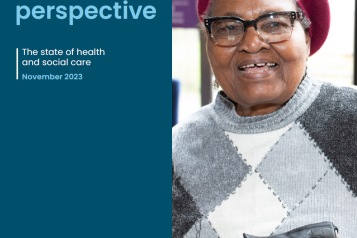What should you expect from the NHS when it comes to accessible information?
The aim of the standard is to make sure that people who have a disability, impairment or sensory loss get information that they can access and understand, and any communication support that they need.
This includes making sure that people get information in different formats if they need it, for example in large print, braille, easy read or via email.
It also includes appropriate support to help individuals communicate, for example, support from a British Sign Language (BSL) interpreter, deafblind manual interpreter or an advocate.
All organisations that provide NHS or adult social care are required to follow the new standard, including NHS Trusts and Foundation Trusts, and GP practices.
Five things that you should expect from organisations that provide NHS or adult social care:
-
You should be asked if you have any communication needs, and asked how these needs can be met
-
Your needs should be recorded in a clear and set way
-
Your file or notes should highlight these communication needs so people are aware and know how to meet them
-
Information about your communication needs should be shared with other providers of NHS and adult social care, when they have consent or permission to do so
-
Information should be delivered to you in a way you can access and understand, with the option for communication support if needed
Find out more about the accessible information standard.
What are we doing?
We are committed to making sure all our information is clear and accessible for everyone. It is vital that anybody who wants to find out about our work is able to do so.
Local Healthwatch have produced a toolkit for the network to explain what the accessible information standard is and how they can hold others to account.
This was produced with support from NHS England, Healthwatch England, The Alzheimer's Society, Surrey Coalition of Disabled People, Sight for Surrey, NHS Coastal West Sussex CCGs, Barchester Healthcare and Cranleigh Medical Practice.


